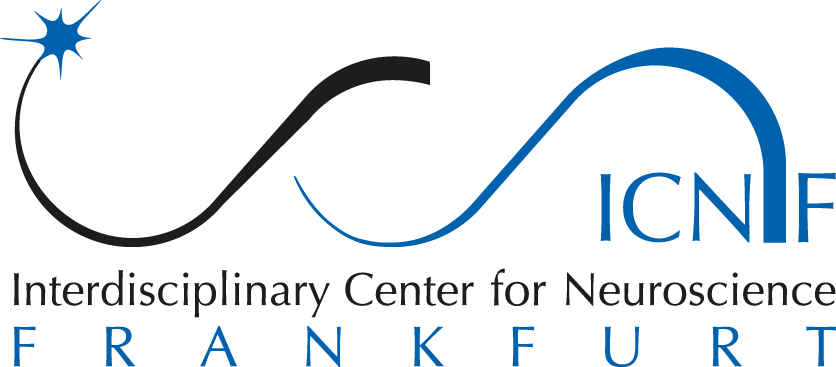The study of the development and of the functional properties of the brain as well as its pathology constitutes one of the major biomedical challenges of the upcoming decades.
In Frankfurt am Main, neuroscience has always been a highly prominent area of research and provides excellent preconditions to meet these challenges.
Neuroscience spans many disciplines. Its repertoire stretches from molecular biology and proteome research to systems neurobiology, cognitive neuroscience and clinical research. Successful research in neuroscience rests on a combination of differential concepts and methodical approaches.
The ICNF is designed to be interdisciplinary and multi-departmental (Department of Medicine, Department of Biological Sciences, Department of Psychology and Sport Science, Department of Chemical and Pharmaceutical Science, Department of Mathematics, Department of Physics, Max Planck Institute for Brain Research, Max Planck Institute for Biophysics, Frankfurt Institute for Advanced Studies). It includes experimental research in medicine and biology, neuropsychology and clinical as well as theoretical neuroscience.
The ICNF promotes long-term coherence of neuroscientific activities in the various locations of the individual institutions throughout Frankfurt.
Neuroscience in Frankfurt stands out for its vertical research approach from the molecular and cellular level to systems neurobiology, behaviour and cognition, and vice versa. The vertical approach allows for the fact that molecular and cellular mechanisms sustain complex brain functions including cognition and that also conversely complex brain functions can influence the cellular and molecular biological levels. This also applies to pathological alterations of the brain, such as Parkinson’s or Alzheimer’s disease. Fundamental insight gained by these approaches has important consequences for other scientific areas and industrial applications.
The research groups in Frankfurt apply a broad range of modern techniques in cellular and molecular biology. Analyses of complex brain functions are carried out using both modern electrophysiological methods and imaging techniques within the newly established “Brain Imaging Center” on the Niederrad campus. Psychological approaches are employed to unravel the development and pathology of cognitive processes and also for modelling complex brain functions.
